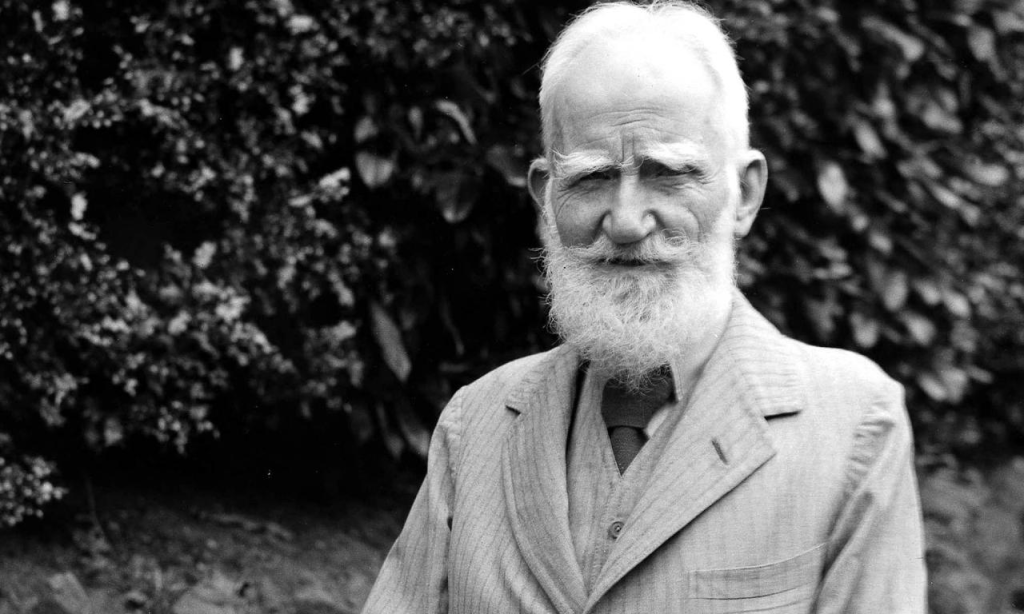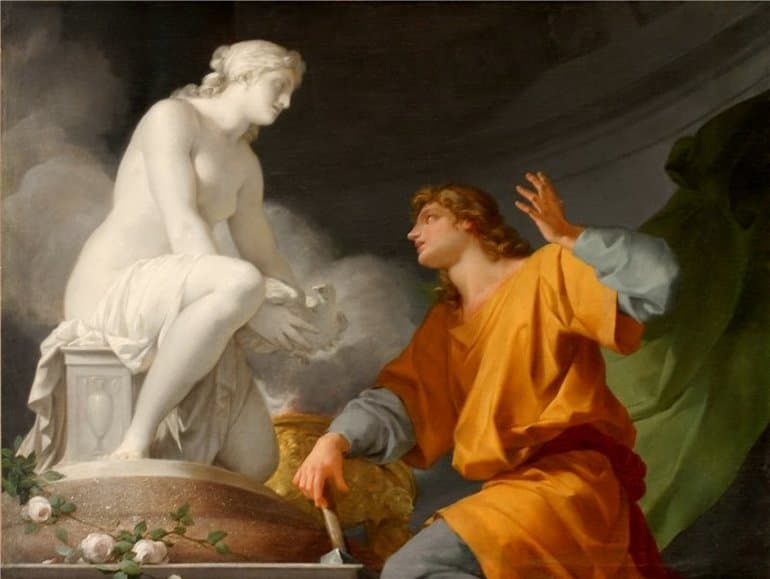THE GENIUS OF BERNARD SHAW IN THE PLAY “PYGMALION”

“Pygmalion” is a play written by George Bernard Shaw. It is named after a Greek mythological figure and was first presented to the public in 1913. Having carved his Galatea from ivory, the mythological Pygmalion appealed to Aphrodite to breathe love and life into the statue. After falling in love, the statue came to life, became the wife of the hero and gave birth to his daughter. However, a psychological play and a psychological novel of the twentieth differs from the ancient myth in that it does not recognize formal endings. A realist writer appeals to everyday experience, and from experience we know that life is far from always obedient to our intentions.
Taking the myth of Pygmalion as the basis of the dramatic plot, Shaw permeates it with irony. While the reader or viewer, having believed in the mythologism of the drama in advance, patiently, albeit with some distrust of the new Galatea, awaits a happy ending.
“Pygmalion” has the subtitle “A Romance in Five Acts”, which emphasizes the closeness of the play in its style and artistic objectives to the English realistic prose of the early twentieth century. Meanwhile, this mature, artistically perfect work of the English writer is a vivid example of the genre of “drama of ideas” he himself created. Sometimes this favorite genre of Bernard Shaw is also defined as “intellectual” or “paradoxical” drama.
“Pygmalion” explores how social identity is formed not only through patterns of speech, but also through one’s general appearance. The book highlights the complexity of human relationships, and the interaction between classes. One of the biggest lessons is from Eliza and it is if you keep on elevating and making yourself better in life, it is virtually impossible to return to the way you were. The book teaches us how the upper class ostracized the lower class. Shaw highlighted the errors in people’s ideas of how the lower classes lived and all the social prejudice including views of women and of the poor.
The plot of the work is quite ironic due to parodic stylization, tragedy of the life of society, directed against a spiritually rich person, and the main elements of the play are numerous paradoxes and discussions. Thus, the theme of the work emphasizes the spiritual awakening of people possible through the art of words and creativity. This play has a more social and democratic orientation, being a work about the natural equality of people living in society.
This work is like a psychological love drama, which entailed the hatred of its participants for each other. It shows how carefully people ought to treat all living things, the author tells us about the fear and avoidance of cold experiments on people.
During the writing of Pygmalion, Shaw was particularly fond of phonetics. He believed that ideally correct English speech is possible to change a person’s character and behavior. Subsequently, he donated a large amount of money to compile a new English alphabet, helping to eliminate the line between writing and pronunciation of words. The theme of “Pygmalion” in the minds of Shaw’s contemporaries was connected with the ideas that he shared with all his heart – the ideas of social equality and female emancipation. However, later, having survived the social recipes of its time, this work essentially returned to the mainstream of those eternal themes that originate in the ancient myth. This is a play about how a person in his creation of another person can become like the divine creator.
The play “Pygmalion” tells us how the lives of people can change thanks to the received education. So, the play’s problems are multifaceted. We emphasize that Bernard Shaw was able to highlight the problem of inequality of people in society in his work. The play also has an instructive and educational value related to education. After all, proper education and upbringing plays an important role in the life of any harmonious and self-sufficient person.
After reading this book I have to conclude that it takes more than just talking as a lady to become one. In my point of view, Eliza was able to be a lady, however it is not so easy. It was very complicated to change one’s character or behavior. Even Eliza has just chosen another life with different society. At the end, she has understood that this kind of life is not for her and she just wanted to be happy, to stay the way she was with her kindness.

Uzbekistan state world languages University the third year student of the faculty of English Philology Boboeva Bakhora
